Maintaining good health while abroad is imperative. This next section will give you some tips on how to prepare to go abroad and still maintain a healthy lifestyle.
Anyone can get sick abroad, but we want to be sure you are prepared to handle your personal health and assure you know what to do if you find yourself sick or with a medical emergency.
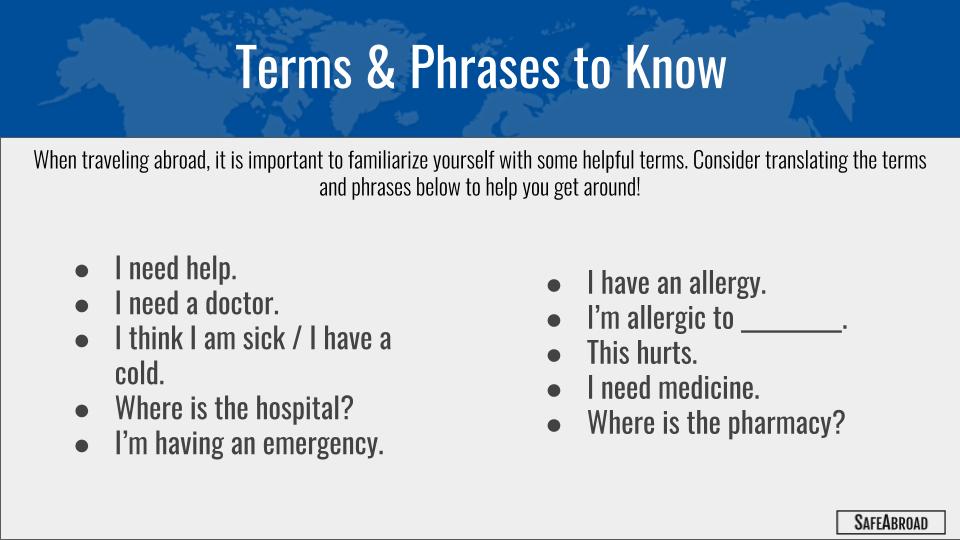
If your host country speaks a language you are unfamiliar with, consider translating and memorizing a few of these key phrases.
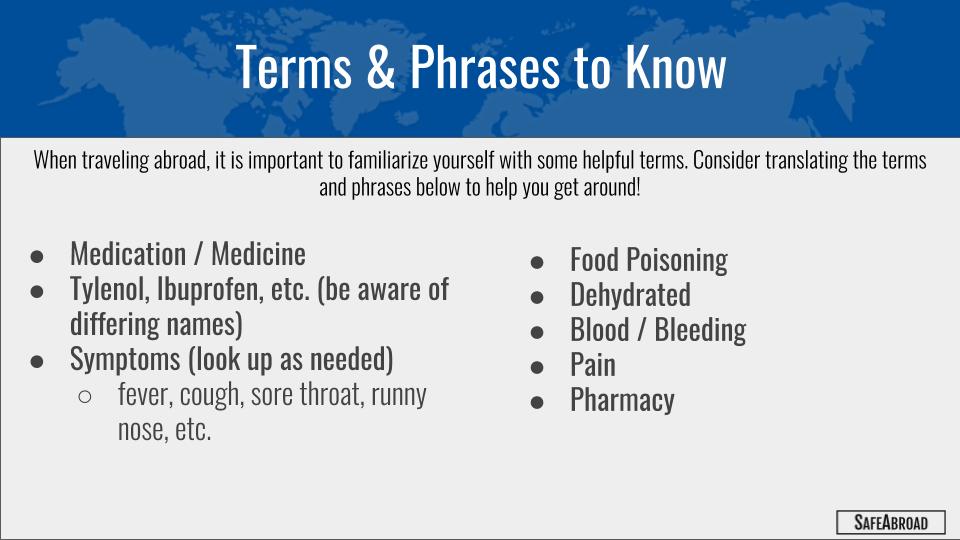
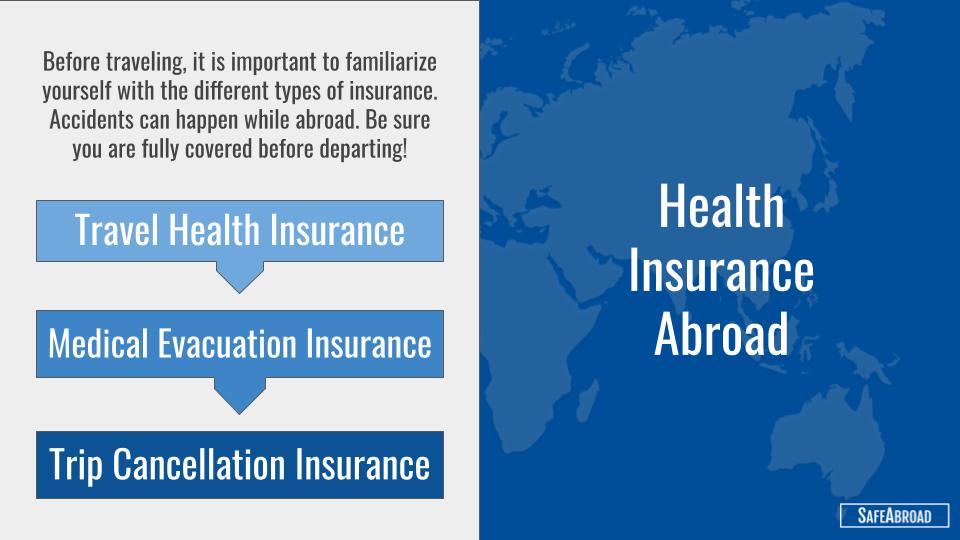
Your university may provide you with health insurance for your trip. In that case, use the provided insurance as your primary insurance.
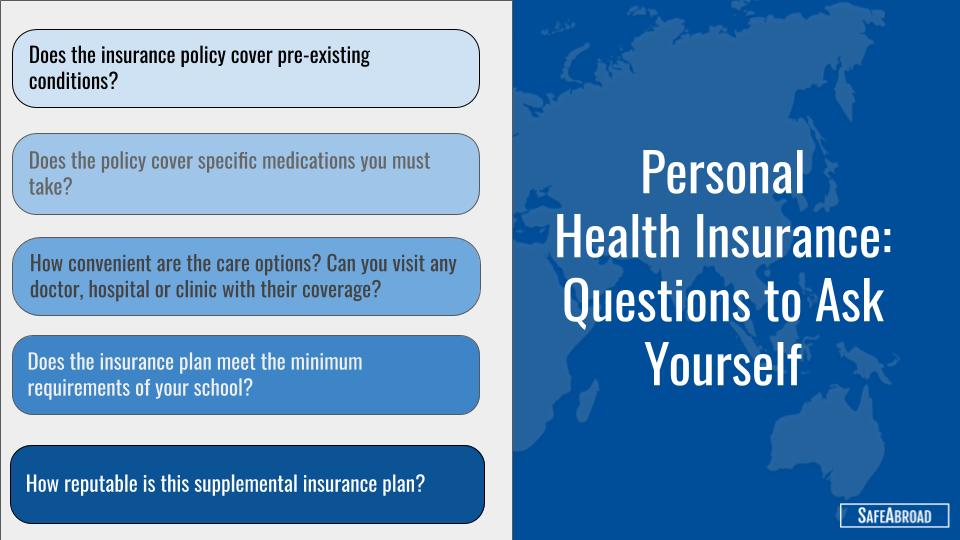
Contact your provider to have a clear understanding of what kind of coverage you will have while abroad. If the coverage provided is inadequate for your needs while traveling, you can purchase a short-term supplemental policy. Be sure your insurance card is updated and with you at all times.
It is also recommended to have a card, in the local language, with any chronic illnesses or allergies you may have, current medications, and your blood type listed.
If your private insurance does NOT have coverage abroad, consider purchasing a short-term insurance plan that will cover all your needs while traveling abroad. Visit the Department of State website for information about the country you are visiting to determine what insurance plan you will need.
Keep in mind the activities you have planned, such as adventure sports, when deciding what provider and policy you will choose.
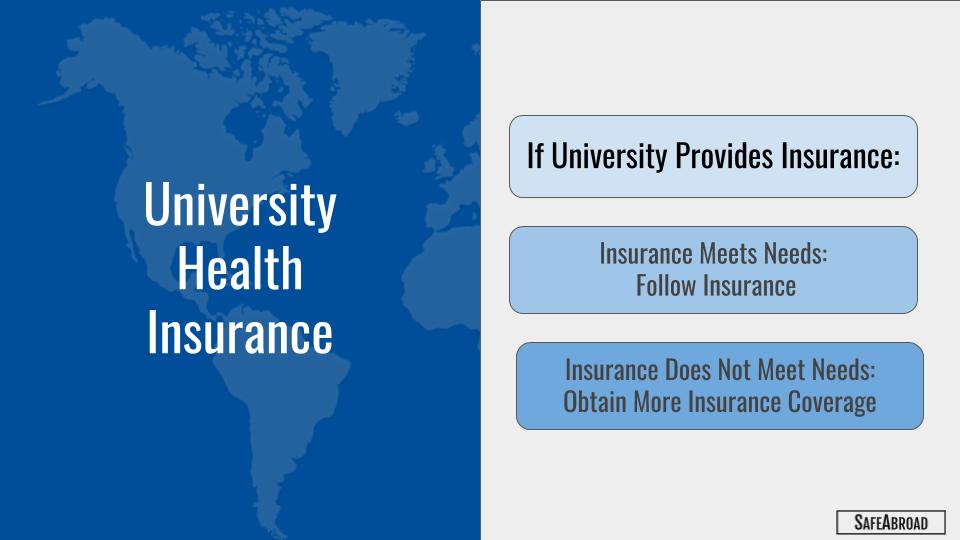
If you feel you need more coverage, get a policy that will work with the university’s insurance. Follow the steps your university provides and make sure you understand what kind of coverage you have. Visit Good Neighbor Insurance (https://www.gninsurance.com/travel/) for some short-term international medical insurance options.
Again, it is recommended to have a card, in the local language, with any chronic illnesses or allergies you may have, current medications, and your blood type listed.
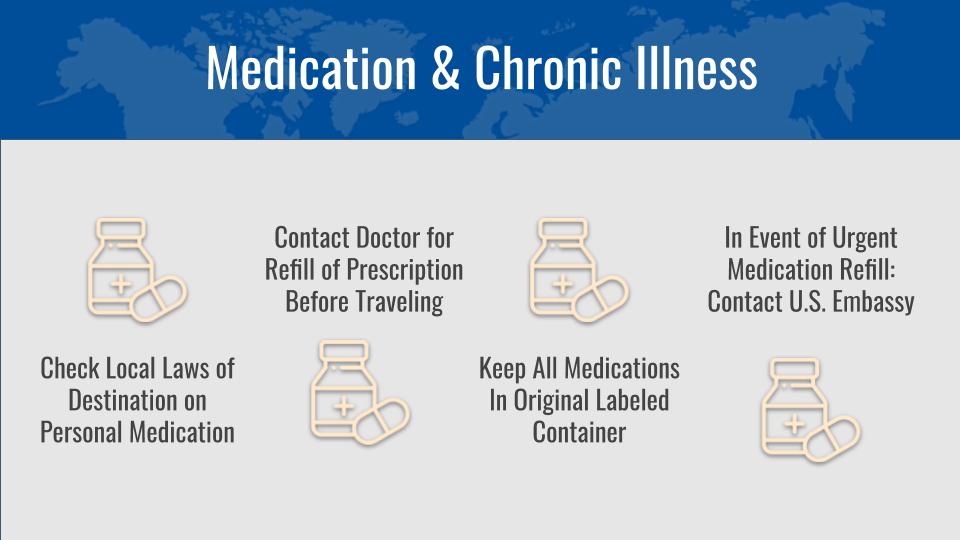
If you are taking any medication that is considered a controlled substance in the country you are visiting, contact your doctor and the U.S. Embassy.
It is recommended you have a letterhead from your doctor stating why you need said medication. Contact your doctor to refill your prescription before you travel abroad. Keep all medications in their original labeled container.
In the event you need medication abroad, contact the nearest U.S. Embassy. They will connect you with doctors and pharmacies that will provide you reliable medications.
Be sure you have all the required and recommended vaccines before departure. Visit the CDC website to find any recommended vaccines or contact your doctor.
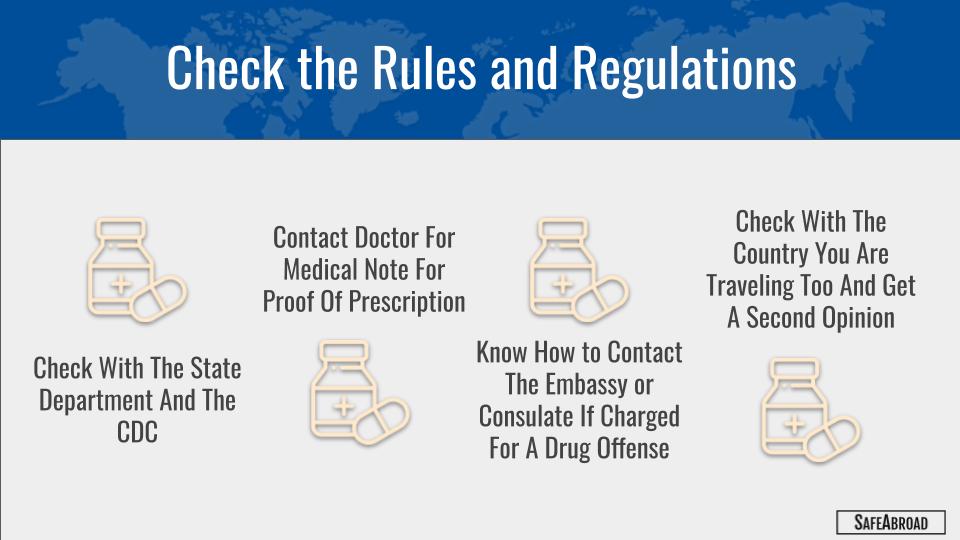
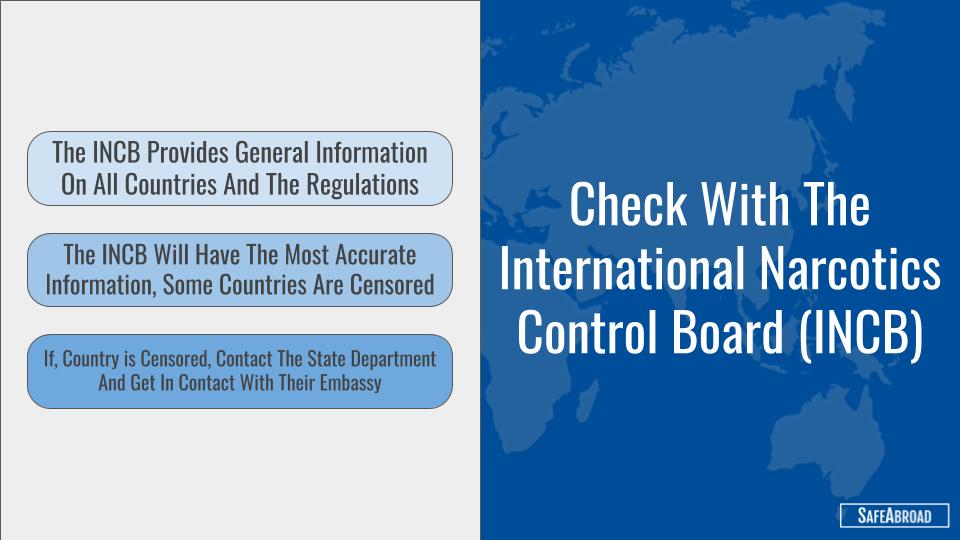
Not all prescription drugs used in the US may be legal in other countries. The INCB will have the most accurate and up-to-date information about which drugs are allowed for use in your host country. Due to censorship and other issues, some countries may not be listed on the INCB website. If your host country is censored, contact the State Department to have them contact their embassy.
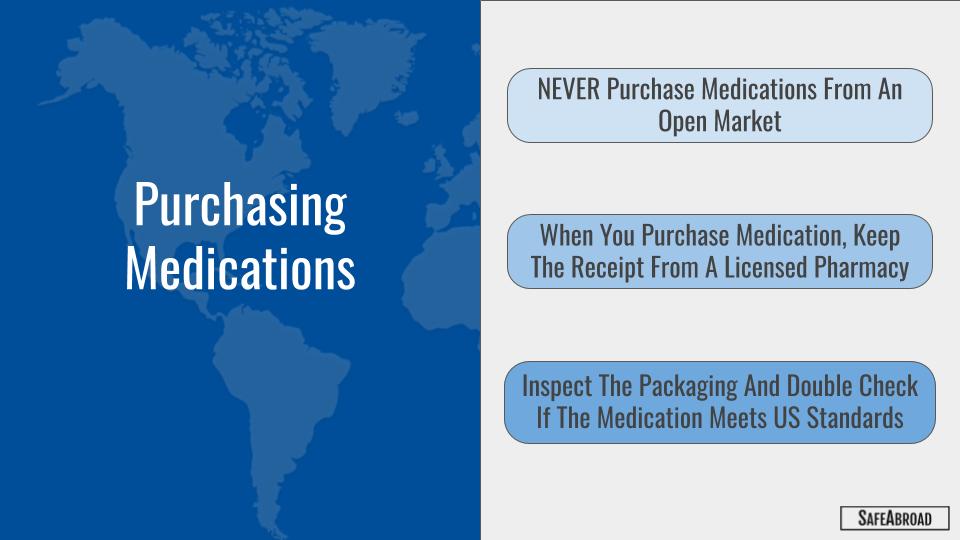
If possible, try to bring all medications for the duration of your trip with you from the US in their original packaging.
If that is not an option, exercise caution when buying medications. Never purchase medications from an open air market. Purchase all medications from a pharmacy, and keep the receipt from the licensed pharmacist. Before using the medication, inspect the package to ensure it has not been tampered with and ensure that is meets the same standards as US medications.
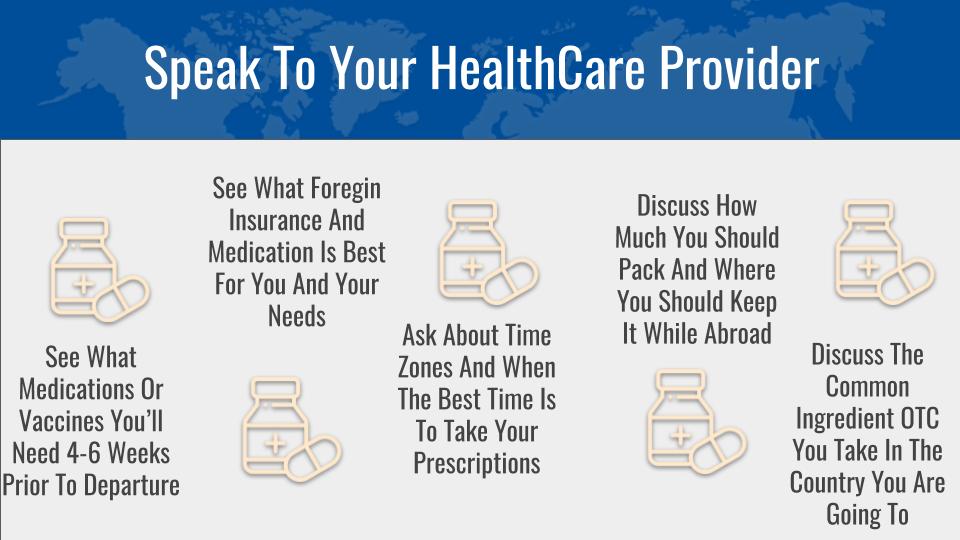
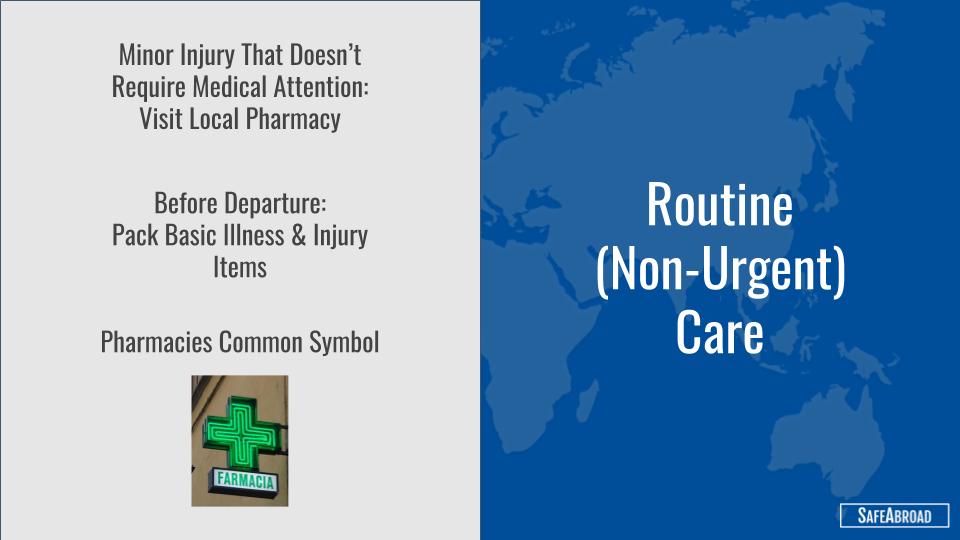
Be advised that not all pharmacies abroad are similar to those in the U.S. You should contact your program leader for advice and support.
Before departure, consider packing the following items to prevent illness or injury:
– Insect repellent
– Sunscreen
– Antibacterial hand wipes or hand sanitizer
– First-aid supplies
– Moleskin (for blisters)
– Aloe gel
– Sleep aid
– Medicine to prevent altitude sickness
– Water purification tablets
– Latex condoms
Another tip to keep in mind; pharmacies commonly display a green plus sign as depicted. Other recognizable symbols include: Rx symbol, mortar and pestle, or a caduceus.
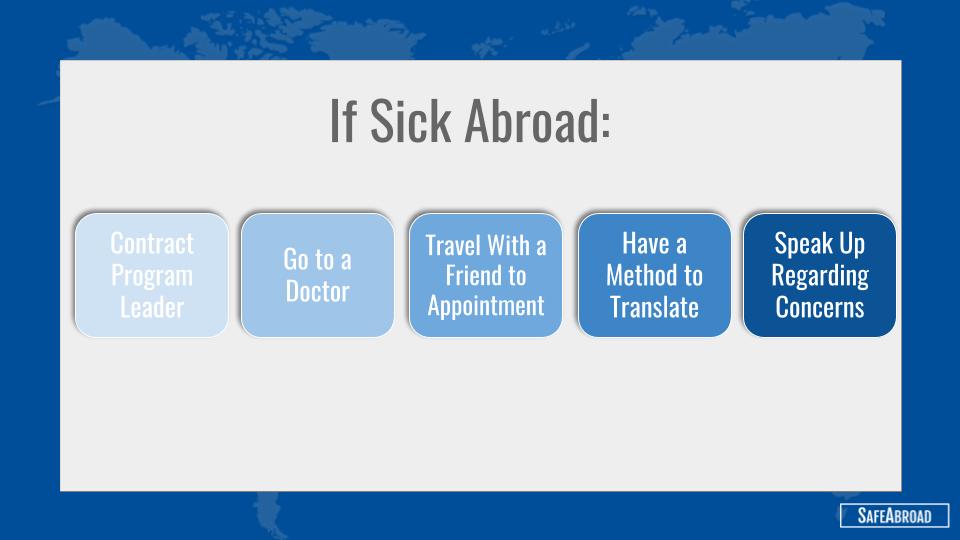
Contact your program leader to discuss your concerns and options.
Travel with a buddy when possible. Being sick may cloud your decision making and having someone with you to provide support is helpful. If needed, make sure you have someone who can translate for you. This way, if you have any concerns you can discuss them.
While doctors usually know best, if you are uncomfortable with the treatment, speak up. Be aware of what is going on and on top of of any medications being recommended as well as any existing and known allergies to medications.


